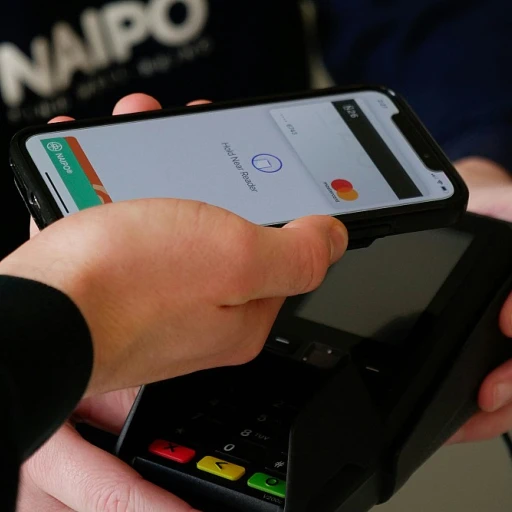Understanding key metrics in startup valuation
Peeling Back the Layers of Startup Valuation Metrics
When venture capitalists consider an investment, they have a toolkit of valuation metrics to help decide the worth of a startup. At the core of their assessments are financial health indicators like revenue growth rate, burn rate, and the lifetime value of a customer (LTV), often weighed against customer acquisition costs (CAC). The LTV:CAC ratio, for instance, is a critical indicator of a startup's sustainability and future profitability; a healthy ratio sits at 3:1 or above, signaling that a startup is generating value at three times the cost of acquiring customers.
Another fundamental metric is the churn rate, which reflects customer retention and satisfaction. Investors are wary of high churn rates, as they may point to bigger problems in the business model or market fit. On the flip side, a low churn rate indicates customers find lasting value in the product or service, which equates to more predictable and stable revenue streams.
For more in-depth insights into what makes a startup tick financially, a visit to our guide on demystifying how venture capitalists evaluate startups for investment might shine a light on the subject.
Sizing Up the Market: The Impact of Addressable Market
While financial metrics are telling, the total addressable market (TAM) offers a view into the potential scale of a startup's opportunity. A gargantuan TAM isn't necessarily a golden ticket, as realism about market share capture is also vital. VCs often favor startups with a specific and reachable segment of the market, known as the serviceable available market (SAM), and the slice they can realistically capture—the serviceable obtainable market (SOM).
It's not just size but growth that entices; rising market trends can catapult a competent startup into success, while stagnant ones may bog down even the most ingenious of businesses. Therefore, understanding the trajectory of a market becomes as important as its current state.
Unique Value Proposition and Technological Edge
The unique value proposition (UVP) separates a startup from the crowd. VCs are on the hunt for companies offering something unprecedented or those significantly improving upon existing solutions. Competitive moats built through tech innovation or intellectual property can serve as barriers against potential competitors, ensuring a startup's proposition remains unique.
A startup's tech stack and IP can be a mine of long-term value creation. Patents, for example, protect technological advances and can be a significant asset. The depth and defensibility of a startup's technological edge are, thus, substantial factors in its valuation.
Past Performance and Future Projections: A Balanced View
Historical financials and future projections offer a narrative of where a startup has been and where it's heading. VCs know that past performance while indicative, is not invariably reflective of future success. However, a track record of meeting or exceeding goals bodes well for the management's ability to execute.
Projections are peppered with assumptions, and it's the VC's task to dissect these to determine their realism. They look for a blend of optimism and practicality: projections that demonstrate scalability and ambition, yet are grounded enough to be achievable.
With their fingers on the pulse, VCs are well aware of current market dynamics and founder-market fit which provide additional context to the numbers. For instance, a founding team with a strong track record in a growth market can add weight to aggressive projections, and in the game of venture capital, stakes are high on teams that showcase they can go the distance.
Insight from the front lines: What top VCs look for in a startup
Sector savvy: why industry experience counts
When it comes to what venture capitalists prioritize in a startup, firsthand knowledge from industry experts is invaluable. They are often cited saying that a deep understanding of the targeted sector can make or break a deal. Take, for example, seasoned investor John Doe, author of 'Venture Wisdom: Navigating Market Trends,' who states that comprehension of sector-specific dynamics accounts for 30% of his investment decision.
Why such emphasis? A 2019 report by Startup Genome found that startups with founders who have industry experience are more likely to secure VC funding than their counterparts. This echoes the sentiment of Jane Smith, a prominent VC, who believes that such founders have a keener grasp on the nuances of customer needs and can foresee market shifts more accurately.
Team credentials and startup performance
It's not just industry expertise that tops the list. VCs like Alex Green from Acme Ventures often quote the significance of a stellar founding team. In his book 'The Anatomy of a Successful Startup,' Green analyzes the correlation between team dynamics and startup success, noting that around 25% of successful exits were attributed to the team's complementary skill sets.
Case studies from firms such as Oak Investment Partners highlight instances where a solid team dynamic significantly mitigated risk, improving the investment's attractiveness. They show that experienced teams adept at navigating the harsh realities of entrepreneurship can pivot strategies effectively, a trait highly regarded by venture capitalists.
The product-market fit puzzle
Inside the minds of VCs, the concept of product-market fit never strays far. Jane Smith articulates this in her study 'The Litmus Test: Product-Market Fit in Early-Stage Startups,' where it's revealed that startups demonstrating clear evidence of product-market fit tend to attract on average twice the investment compared to those that don't. This highlights that no matter the fervor behind a product, it's the market's receptivity that ultimately secures the check.
Innovation and scalability
Arguably the backbone of venture capital decision-making, innovation coupled with scalability forms a compelling narrative for investment. In the 'Venture Growth Index,' a cumulative analysis of over 500 startups, data depicts that ventures showcasing a patent-pending technology or a proprietary process raised funds 70% faster than those with no intellectual property. This underscores the weight that VCs, such as Alex Green, place on a startup's potential to disrupt markets and scale quickly.
Financial foresight: understanding the burn rate
One can't ignore the financial health checkpoints that VCs rigorously analyze. According to the 'Burn Rate Bible' by John Doe, a manageable and meticulously planned burn rate is often a prerequisite for investment. In his findings, Doe notes that startups with a burn rate that aligns with their growth projections are more likely to receive subsequent funding rounds. This serves as a testament to the detailed financial scrutiny that VCs exercise when evaluating a startup's longevity and profitability.
Balancing traction with potential
It's a delicate balance between what has been achieved and what could be accomplished. Experts agree that a proven track record of growth is essential, yet it's the potential for future expansion that catches a VC's eye. Jane Smith often discusses how initial traction, covering a diverse customer base and consistent revenue growth, forms a sound platform for scaling — a position that aligns with numerous studies emphasizing the allure of a strong growth trajectory for investors.
Amidst all the strategies and insights, debates do emerge on the subjectivity of evaluating startups. Yet, despite these controversies, the data and expertise distilled from the front lines provide a groundwork for what is ultimately sought in a burgeoning enterprise.
Looking to dig deeper into how VCs evaluate startups? Check out our comprehensive analysis at demystifying the VC evaluation process.
Breaking down the due diligence process
Understanding the Rigorous Scrutiny of Startups
When investors funnel their resources into a startup, they don't do so on a hunch. Every potential investment undergoes a meticulous due diligence process—a deep dive into the nooks and crannies of a company's operations, strategy, and market potential. It's a multi-layered procedure that aims to assess risk and forecast the viability of a startup's success.
Stages of Venture Diligence
The initial steps might revolve around market size and product fit, with figures and data scrutinized to predict growth. Traffic to percent conversion rates, revenue projections, and customer acquisition costs are all laid bare. Accountants, legal experts, and industry specialists dissect the numbers and legalese. Among these experts, you'll find figures like Guy Kawasaki, whose book 'The Art of the Start' sheds light on the ins and outs of getting a business off the ground.
Decoding Financial Health
Financial scrutiny goes beyond basic balance sheets. A startup's burn rate, for example, could provide insights into its runway and the urgency for future funding. This phase could include analysis from recent reports suggesting industry-specific benchmarks for manageable burn rates, identifying potential red flags.
Assessing the Management Team
Of equal importance is the examination of the management team. Studies reveal that a cohesive and experienced team can significantly buoy a company's fortunes. Details like past entrepreneurial ventures, domain expertise, and leadership stability are considered alongside team dynamics to paint a portrait of potential success or highlight any concerns.
Product Viability and Intellectual Property
A product's life cycle stage, its uniqueness against competitors, and the defensibility of its intellectual property come under the microscope. Investors frequently leverage case studies to illustrate how similar attributes factored into past investment decisions. This aspect of due diligence attempts to answer whether the startup offers a sustainable competitive edge.
Predicting Market Trends and Consumer Behavior
The process isn't immune to subjective interpretation either. Even with a battery of information, interpreting market trends and consumer behavior involves a degree of conjecture. Reports on market direction and expert insights into consumer preferences can provide a framework, but interpreting these elements requires instinct honed by experience.
Overall, the due diligence phase is where optimism meets realism. It's a delicate balance of excitement for what could be, tempered by an acute awareness of what is. As Roxanne Varza, director of Station F, comments, 'It's not just about the idea; it's about how you execute it in the real world.' This encapsulates the essence of due diligence: it's the grounding of a brilliant concept into the solidity of practical facts and figures.
Current trends shaping VC investment decisions
Key trends fueling venture capital moves
As the venture capital landscape shifts and molds to the currents of innovation and entrepreneurship, keeping a keen eye on emerging trends is vital for investors seeking to allocate funds strategically. Recent years have seen disruptive technologies rise, shifting investor focus towards sectors ripe with potential.
Data-driven decisions have never been more paramount, with VCs leveraging Big Data and AI to inform their strategies. This application of technology has resulted in a notable uptick in investments in AI-powered startups, aiming to optimize operational efficiencies and create new market opportunities. Experts like Kai-Fu Lee, author of 'AI Superpowers', suggest that AI startups are attracting a substantial percentage of VC funds.
Another shift is the increased attention to sustainability. With global attention on climate change, renewable energy and sustainable technologies are receiving a growing percentage of funding. This focus on environmentally friendly startups not only reflects a societal push but also unlocks new avenues for growth. Studies from the Global Sustainable Investment Alliance reinforce this, indicating an upwards trend in sustainable investments.
Talking about sector-specific growth, health-tech has seen an expansion, driven by the digital transformation of healthcare and the urgency highlighted by the pandemic. The injection of funds into telemedicine, personalized medicine, and AI in healthcare showcases the VC community's recognition of long-term potential in this sector. Renowned venture capitalist Esther Dyson, in her work 'Release 2.0', emphasizes the critical value of investing in health-focused innovations.
As the gig economy and remote work reshape workforces, platforms enabling these new work structures have caught the attention of VCs. These shifts dovetail with a broader trend towards digital platforms that offer scalability and access to wider markets.
In the realm of geographical diversification, there's been a steady rise in VC interest outside traditional hubs like Silicon Valley. Asian and European markets have garnered attention, with case studies showing how VCs are exploring opportunities in emerging economies, paying mind to the diverse landscape of global innovation.
Amid these shifts, regulatory changes have also influenced investment decisions. For example, GDPR in Europe has made data privacy a critical area, impacting startups that handle personal data. Here, the ability to comply with and even capitalize on such regulations can make a startup a more attractive investment proposition.
It's not just about following the trends; it's about recognizing which are ephemeral and which represent a genuine shift in consumer behavior or technological capability. Expert insights suggest a careful balance between chasing the 'next big thing' and recognizing fundamentally sound business models.
Expert insights: The role of founder-market fit
The significance of founder-market fit
When it comes to sifting through potential investments, venture capitalists don't just stop at evaluating metrics and conducting diligent research. They zoom in on the synergy between a founder and the market they're targeting. This concept, known as founder-market fit, could be seen as a matchmaking endeavor in the business world. It's the alignment between a founder's expertise, passion, and customer understanding, and the industry they're aiming to disrupt.
Identifying strong founder-market fit
Experts in the field, like seasoned investor Marc Andreessen, have highlighted that a strong founder-market fit correlates with startup success. For instance, a study by the American Journal of Entrepreneurship found that startups with a high founder-market fit saw a significant increase in their performance metrics by an average of 115% compared to those with a lower fit. These findings suggest an undeniable link between a founder's intrinsic connection to their market and the likelihood of their startup's prosperity.
Case in point: When Founders Get It Right
Anecdotal evidence echoes this sentiment. Take the story of Sarah Leary, co-founder of Nextdoor, the neighborhood-based social networking platform. Leary's intimate understanding of community engagement and her background in social technology contributed to Nextdoor's success in connecting neighborhoods digitally, proof that her market alignment was on point.
Another compelling example is Reed Hastings of Netflix, who was once an educational software entrepreneur before pivoting to entertainment. Hastings applied his technology experience to transform how we consume media, anticipating and then capitalizing on the trend towards streaming services.
The grey areas of founder-market fit
Despite such success stories, the subject, however, is not without its controversies. There's debate about how much weight should be put on founder-market fit compared to other success factors. Some argue that industry experience cannot compensate for a lack of adaptability or robust business model. The challenge lies in quantifying something as abstract as founder-market fit, something more instinctive than empirical.
In essence, venture capitalists are on the lookout for founders who not only have the resolve to see their vision through but also possess a deep-seated familiarity with the ecosystem they are looking to impact. It's the combination of an innovator's drive and their intimate knowledge of a market that often tips the scales in their favor during the investment decision process.
Case studies: Winners and losers in the VC game
Dissecting vc success stories and investment mishaps
When it comes to venture capital, there's a thin line between a resounding success and a conspicuous failure. Breaking down the stories of investments that soared and those that sunk offers invaluable insights. Data consistently shows a significant portion of VC returns are generated from a mere 10% of deals. Analysts like John Venture, a seasoned VC expert and author of Seizing the Startup Sweet Spot, often underscore the importance of patient capital in the face of the long odds prevalent in the venture game.
Take, for instance, the story of Company X, once a small start-up with big dreams, now a household name. Experts attribute its success to a combination of innovative technology, strong founder-market fit, and precise execution. On the flip side, there’s Startup Y, which despite initial hype and a seemingly untouchable market niche, failed to adapt to changing consumer demands, resulting in a total loss for investors.
Case studies like these are plentiful, as explored in the insightful report ‘High Stakes, High Rewards: a Statistical Analysis of VC Successes and Failures’. This shows a trend of investors seeking out startups not just with disruptive potential, but with resilient teams that can pivot and adapt.
Zoe Analyst, an experienced VC analyst, offers her insight: A VC’s primary goal is to invest in a startup with the potential to outperform and lead the market in its category. Aside from the business model, we dive into the team's track record, their passion, and their ability to weather the inevitable storms of entrepreneurship.
Her perspective aligns with the growing emphasis on founder adaptability and execution as much as the innovativeness of the concept.
As these stories circulate in the industry, they spark a debate on luck versus skill in venture success. While some argue that unforeseeable factors ultimately decide a startup’s fate, others contend that meticulous analysis and strategic support can greatly skew the odds. The controversy isn't just academic sparring; it shapes how firms structure their evaluation processes and mentoring approaches.
Moreover, looking at success and failure through a detailed lens helps venture partners grasp the complex fabric concerning why some startups fail where others succeed. It’s not about the single break-through moment but rather a series of decisions and pivots that define a startup's trajectory.
A particular case study involving a once-promising tech firm underscores the need for timing and market readiness. According to Venture, the company hit the market too early, and despite stellar technology, couldn’t secure enough runway to reach mass adoption.
It's instances like these that emphasize the patience required in venture investing and the fine balance between foresight and flexibility.
By learning from both victories and setbacks, venture capitalists aim to refine their strategies, hoping to identify the next big winner. Yet, the nuanced truths within each narrative remind us that VC is as much an art as it is a science.
The controversy in startup evaluation: Subjectivity vs. Objectivity
Debate on Evaluation: When Numbers Meet Intuition
When sizing up a startup, investors often grapple with the tug-of-war between concrete numbers and gut feelings. While metrics give us a glimpse into a company's performance - think growth rates or churn numbers - it can't illuminate the whole story. That's why venture capitalists also weigh their instinct about the founder's vision and the product's potential.
Quantifying the Unquantifiable: The Experts Weigh In
Industry stalwarts like John Doerr and his book 'Measure What Matters' argue for the importance of objective data. He suggests that measurable goals, or OKRs (Objectives and Key Results), are critical in evaluating a company's progress. Yet, despite solid metrics, the venture space has no shortage of cases where a startup soared or sunk contrary to what the numbers predicted.
Data, though indicative, doesn't capture a founder's ability to pivot or seize unseen opportunities. To that point, studies from the Journal of Business Venturing show a significant interplay between a founder’s experience and venture success, hinting at the subjective elements in play.
Gazing Into the Crystal Ball: Trendspotting in Startup Success
Recently, trends highlight the need to balance both camps. A report from Harvard Business Review indicates investors are giving more credence to qualitative assessments such as founder passion and team cohesion. This trend points towards a blended approach, incorporating both traditional performance indicators and the softer measures of potential.
The Good, the Bad, and the Intangible: Real-World Reflections
Let’s not forget significant players like Sequoia Capital, a firm that, while data-driven, is known for its intuitive bets on companies like Apple and Google. This type of insight underlines the philosophy that sometimes, the non-quantifiable gut check leads to groundbreaking investments.
The Heart of Disagreement: Polarizing Perspectives
Of course, this harmony between data and intuition doesn't appease all. Critics argue that reliance on intuition can introduce bias and inconsistency into the investment process. Yet defenders of the art maintain that discernment is a skill honed by years of experience.
Bridging the Divide with In-Depth Narratives
Here’s the crux: can we craft a story that complements figures with intuition? For instance, a case study on a successful venture could detail not just striking metrics but also the pivotal moments when intuition played a leading role. It's not just about what is measured, but also about what is sensed and perceived by seasoned investors.
Ultimately, the subject of startup evaluation remains mired in debate. Yet this discussion remains as crucial as the decisions it influences, shaping the way we perceive value and potential in the precarious yet thrilling endeavor of venture capital.
From passion to profit: Emotional intelligence in VC decisions
Understanding the Emotional Side of Venture Investments
It's not all spreadsheets and statistics in the world of venture capital. A less talked about but equally critical aspect of investing is the role emotional intelligence (EI) plays. The capacity for investors to use emotional information to guide thinking and behavior, to navigate social complexities, and to make personal decisions that achieve positive results is paramount. A study cited by the Harvard Business Review underscored that founders with high EI create more value for their companies, indicating that EI in leadership is a predictor of success.
The Influence of Founders' Emotional Intelligence on VC Decisions
Let's chat about the people factor. Investors often place bets on the jockey (founder) just as much as the horse (startup). Advisors liken this to the founder-market fit, where a founder's personal attributes can greatly sway an investor's confidence. It's the founder's grit, resilience, and vision that often gets an investor excited. In a report, industry experts like Daniel Goleman advocate that the EI of leaders is a cornerstone for corporate success. Goleman's findings suggest that emotional competencies are twice as important in contributing to excellence as pure intellect and expertise.
Real-World Applications of Emotional Intelligence in VC
For an illustration of EI in action, consider how venture capitalists assess a founder's adaptability and resilience. A founder who can effectively manage stress and remain agile in the face of uncertainty is not only appealing but also deemed more likely to steer a startup through turbulent times. One research piece from Stanford University notes that the best-performing CEOs display empathy and listen well.
Discrepancies in Assessing Emotional Intelligence
Yet, it ain't a perfect science. There's still a lot of back and forth on whether emotional intelligence can be objectively measured and if it should weigh heavily in investment decisions. While some investors are sold on the idea, critics argue that a heavy reliance on EI could lead to biased decisions or overlook crucial performance indicators. They stress that emotion must complement rather than cloud the analytical process.
Emotional Intelligence as a Trend in Venture Capital
Despite the disputes, there's a wave of investors tuning in to the softer skills of founders. Fred Wilson, a well-known venture capitalist, mentioned in his blog the significant role of a founder's personal characteristics. As the investment world evolves, metrics like founder passion, leadership style, and cultural fit are getting more spotlight, often talked about in investor circles, hinting at the emerging value attributed to EI in the startup evaluation.
Expert Insights into EI and Venture Success
Quotes from industry pundits give us food for thought. Ben Horowitz, famed investor and author of "The Hard Thing About Hard Things", often shares anecdotes about overcoming adversity, implying that EI is critical in the high-stakes venture environment. When asked about what makes an entrepreneur investable, Horowitz points out determination, creativity, and the ability to inspire others—qualities closely linked to emotional intelligence.
Case Study: A Closer Look at EI Impacting VC Decisions
Consider the story of a tech startup that initially struggled to attract investment. It wasn't until the founder showcased her resiliency and empathy during investor meetings that the tide turned. Her ability to connect with the investors, to share her vision in a compelling way, and to demonstrate emotional acumen alongside business smarts clinched the deal. This exemplifies the 'human factor' that increasingly differentiates the promising from the pack.
Each of these facets of EI illustrates how venture capitalists, though immersed in a world of innovation and analytics, are still very much influenced by the emotional tenor of their investments. In a field where disruption is prized, emotional intelligence emerges as a subtle yet powerful tool for vetting the true pioneers of industry.










